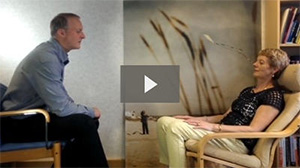This podcast is a clip from the live Q&A teaching sessions which are part of our online homestudy course How To Stop Anyone Smoking, where therapy practitioners from all over the world learn a structured approach to treating smoking cessation clients.
Here’s the question asked of me by Colleen, a practitioner from the USA
“Do you have any advice for a therapist doing her first session, especially if that person, intellectually, is aware of her perfectionist tendencies? I feel like I’m learning tennis again but I’m thinking about too many parts of the game at once, so I miss the simplest forehand!”
Prefer to watch instead?
In this podcast, I discuss:
- Tips for your first session as a new therapist
- Why it’s better to be an imperfect therapist than an intimidatingly perfect one
- Why we’re not doing therapy to or on our clients, but with them
- The effectiveness of therapy as a right-brained, intuitive activity
- Why you should learn therapy and then forget it.
Read about ‘How To Stop Anyone Smoking’, my online homestudy course »
Read the transcript below:
Question: “Do you have any advice for a therapist doing her first session, especially if that person, intellectually, is aware of her perfectionist tendencies? I feel like I’m learning tennis again but I’m thinking about too many parts of the game at once, so I miss the simplest forehand!”
Mark: I know that feeling with tennis. And actually you play the best tennis when you forget about tennis altogether, when the pressure’s off.
It reminds me of the story of the curious boy with the fly. He’s fascinated by flies and how they fly. He captures one and he’s not a psychopath, he’s just curious. He starts picking the legs off the fly and the wings off the fly and the head off the fly. He’s got all of the parts of the fly, but it doesn’t work. It doesn’t fly. That’s a beautiful and ancient metaphor for different ways of learning and utilising knowledge.
Perfectionism often involves the more conscious, what we might call left brain trying to regulate and control and put rigid requirements onto areas of life that aren’t always as quantifiable as that part of the brain would like.
So often the client doesn’t respond to our perfect therapy but gets better after a session we feel wasn’t so great. Maybe from a conscious point of view it didn’t tick all the boxes but intuitively we did all kinds of things and because we weren’t sure why we did them we felt unhappy with the session.
The most useful advice I was given when initially learning therapy was to forget everything, which of course means learn everything and remember everything and then forget everything. This is because therapy is primarily a right-brained and intuitive activity that some people try to do like it’s a piece of bureaucratic form filling.
Nothing is more human than sitting down with another person and seeking to help them feel or be better in their life. This is the basis for so much human development, including hundreds of thousands of years before the first ever therapy certificate was made up. I think the best therapists have a generosity of spirit and they are generous enough not to be perfect, especially when confronted with imperfect clients.
I think it’s a good idea to remember that we are not doing therapy to or on our clients but with them. They will tell you where they need to be and also, with your help, discover how they can get there.
So rather than trying to remember everything you learn on this course and squeezing it into a session in some kind of order, just take in some broad ideas, like the fact that smoking is a relationship, that it’s a tyrannical relationship.
The smoker may be suffering from Stockholm Syndrome. That is, the captive may have fallen in love or still be sympathetic to the smoking captor and we need to respect that. Tread carefully, so that they don’t tighten the bonds of their own cage.
Just taking in some of the bigger ideas with you will help your creative mind cut loose and you will be surprised at what you’ll do and how well you’ll do it, once the more conscious mind butts out more.
So my advice is to learn all you can do then make a point of forgetting about it, relaxing with uncertainty and seeing where you intuition takes you. Because your intuition is what is going to really help the client, and it’s free to do that once you’ve done the conscious learning.
And remember, you being a human, and therefore imperfect, and therefore an imperfect therapist is perfect for the imperfect client, much more so than an intimidatingly perfect therapist. I think that made perfect sense on one level.










